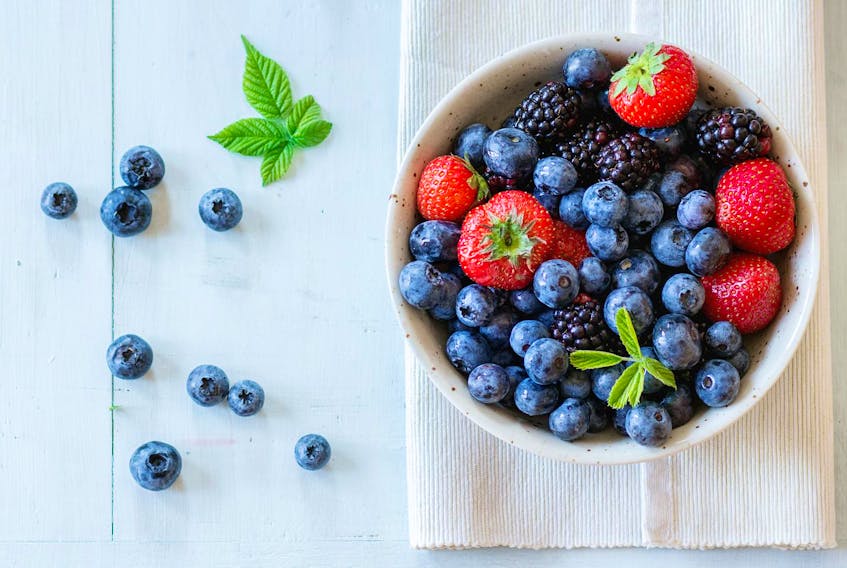New study investigates role of dietary habits on the risk of mental status decline over time
Dr. Colin MacLeod
Staying mentally sharp with a strong memory is important to all of us as we age. Maintaining strong mental faculties allows us the freedom to live independently and enjoy our lives well into our later years.
However, declining mental status is a common problem facing Canadians, with seven per cent of Canadians over the age of 65 living with dementia.
New research has investigated the role of dietary habits, specifically fruit and vegetable intake, on the risk of mental status decline over time.
This study looked at 27,842 male health professionals, with an average age of 51, over the course of 20 years.
Every four years over the course of the study, these men filled out questionnaires about how many servings of fruits, vegetables and other foods they ate on a regular basis.
These men also completed memory and thinking skill tests prior to the end of the study (when, on average, they were 73 years old).
The study showed the men who ate the most vegetables (six servings per day) were 34 per cent less likely to develop poor thinking skills and memory deficits compared to the men who ate the fewest vegetables (two servings per day).
It was also observed that men who drank a serving of orange juice daily were 47 per cent less likely to develop poor thinking skills compared with men who drank orange juice only once per month.
The results of this study help to illustrate the value of fruits and vegetables in our diets — and their potential impact on long-term brain health.
“One of the most important factors in this study is that we were able to research and track such a large group of men over a 20-year period of time, allowing for very telling results,” said study author Changzheng Yuan of Harvard School of Public Health in Boston.
“Our studies provide further evidence dietary choices can be important to maintain your brain health.”
If you would like to read the study, it can be found at neurology.org.
It is worth noting that the rules surrounding serving sizes of fruits and vegetables are fairly straightforward. For many fruits — such as an orange, an apple or a banana — a serving is simply one piece.
When measuring chopped or smaller fruits and vegetables, one cup provides a single serving. A serving of leafy greens is two cups, as leafy greens are lighter and take up more space than most other fruits and vegetables. A serving of fruit juice counts as half a cup.
If you have questions about boosting and preserving your memory, please ask your naturopathic doctor.
Dr. Colin MacLeod ND is a naturopathic doctor practicing full-time in Upper Tantallon at MacLeod Naturopathic. His practice focuses on pain management and maintaining health through physical activity and diet. Visit him online at drcolinmacleod.com.









